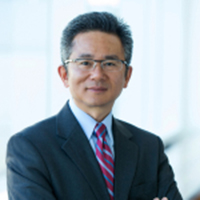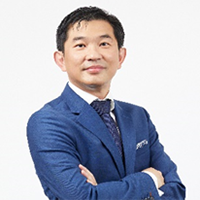 Qihe Tang
Qihe Tang
Professor of Actuarial Science
UNSW Sydney
Insurance and Systemic Risk
Systemic risk is pervasive in nature, economy, and society. Systemic risk in banking and finance, recognized as a major contributor to the Global Financial Crisis of 2007-2009, has been extensively studied. In sharp contrast, much less attention has been paid to systemic risk in insurance. As evidenced by AIG’s collapse, however, insurers can be both a victim of systemic risk and a driving force of it during a crisis.
Shocks on financial firms can be absorbed by insurers, but shocks can also be amplified through financial networks and transformed into systemic risk that is beyond the risk-absorbing capacity of the insurance sector. The current insurance and reinsurance markets are extremely concentrated, and the interconnections among insurers, reinsurers, and financial firms can also be intertwined through multiple layers of retrocession, resulting in a potential to create systemic risk. We will develop a quantitative framework via networks to understand the multifaceted role of insurance in systemic risk.
After earning his PhD in statistics from the University of Science and Technology of China in 2001, Qihe Tang worked at different places around the world including the University of Hong Kong (2001), the University of Amsterdam (2002-2004), Concordia University (2004-2005), and the University of Iowa (2006-2019). At the University of Iowa, he was promoted to Full Professor in 2012 and conferred an Endowed Chair in 2014. He joined UNSW Business School under the SHARP (Strategic Hires and Retention Pathways) scheme in July 2017.
His expertise centres on extreme value theory for insurance, finance, and risk management. Recently, he has been working on various topics from the interdisciplinary field of insurance, finance, applied probability, and operations research. These topics include:
- Modeling, measuring, and managing catastrophe risks,
- Systemic risk and financial networks,
- Pricing in incomplete markets,
- Portfolio theory under model uncertainty, and
- Climate change and insurance.
He has published over 100 papers resulting in an H index of 41. He has been Principal Investigator/Lead Chief Investigator of various major external grants including 2 from ARC of Australia, 1 from NSF of US, 5 from the Society of Actuaries, and 1 from NSERC of Canada.
Currently, he is an Editor of the journal Insurance: Mathematics and Economics, and an Associate Editor of several journals including Applied Stochastic Models in Business and Industry, Statistics & Probability Letters, and Science China Mathematics. He is an Elected Member of the International Statistical Institute.

Marianne Purushotham, MS, FSA, MAAA
Corporate Vice President, LIMRA Research Data Services
The Insurance Industry Evolution and Academic Collaboration
The post-COVID evolution of the insurance industry is clearly underway, presenting both challenges and opportunities. In this session, we will discuss the most important issues currently facing industry stakeholders and ways in which greater collaboration between the insurance industry and academia can benefit this evolution.
Marianne Purushotham is Corporate Vice President of LIMRA Research Data Services and is responsible for LIMRA’s data analytics, actuarial, and statistical modeling functions including applications of advanced analytics to life and health insurance problems. She also serves as an adjunct faculty for the Actuarial Science Department at the University of Connecticut.
During her 33 years in the insurance industry, Marianne has worked in insurer, consulting, academic, and industry trade association roles. Her areas of specialization include pricing and product development, valuation and risk management, and experience analysis for life, annuity and health products.
Marianne currently chairs the Mortality and Longevity Strategic Research Program Steering Committee of the SOA as well as the joint SOA/AAA Life Mortality Improvement Subgroup. She also serves on several other SOA and American Academy of Actuaries committees.
 Ken Seng Tan
Ken Seng Tan
President’s Chair Professor in Actuarial Risk Management
Deputy Division Head (Actuarial Science), Division of Banking and Finance, Nanyang Business School, Nanyang Technological University (NTU)
Sustainable Risk Management Strategy via Index-Based Agricultural Insurance
With the heightened interest in sustainable risk management, the index-based crop insurance has been proposed as a viable scheme for agricultural producers. In this presentation, we highlight the potential advantages and challenges associate with index-based insurance. We also present some recent advances in the optimal design of index-based agricultural insurance.
Ken Seng Tan was formerly the Canada Research Chair in Quantitative Risk Management, Sunlife Research Fellow, and the Associate Director of the Waterloo Research institute in Insurance, Securities and Quantitative finance (WatRISQ) at the University of Waterloo, Canada,
After joining NTU in 2019 and in capacity as the Director of Insurance Risk and Finance Research Centre (www.irfrc.com), he has been heavily involved in the initiative “Global Asia Insurance Partnership (GAIP). “GAIP is a tripartite partnership between the global insurance industry, regulators and policymakers, and with NTU as the main academic partner. GAIP aims to be a global centre of excellence in insurance and risk management in Asia.
Tan is active in research, reforming education and strengthening the profession, including serving as the member of the Natural Sciences and Engineering Research Council of Canada Discovery Grant’s Mathematics and Statistics Evaluation Group, elected council member for a number of Society of Actuaries (SOA) sections, and the Chief Actuarial Advisor for “Risk Management, Economic Sustainability, and Actuarial Science Development in Indonesia (READI),” a government-to-government development project between Canada and Indonesia. His research interests lie at the intersection of actuarial science, insurance, finance, mathematics, and statistics. Much of his work relates to the development and implementation of innovative approaches to risk management, (re)insurance, and computational finance.
Tan is the co-editor of North American Actuarial Journal (NAAJ) and the Associate Editor of the Annals of Actuarial Science and Agricultural Finance Review. He publishes in top-tier actuarial, insurance and finance journals including European Journal of Operational Research, Insurance: Mathematics and Economics, Journal of Banking and Finance, Journal of Risk and Insurance, Management Science, and North American Actuarial Journal. He has received several awards, including the 1996-97 Redington Prize, the NAAJ Annual Prizes 2001 and 2003, and the 2012 Charles A. Hachemeister.

